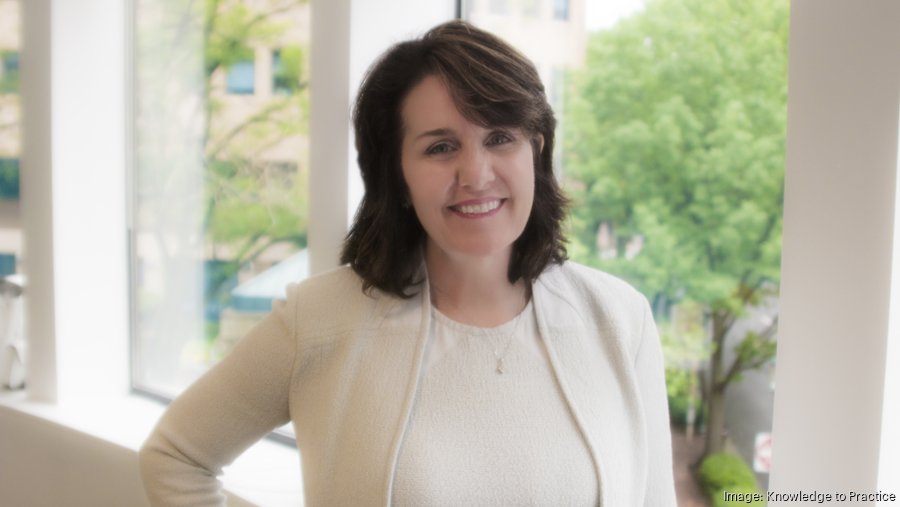Mary Ellen Beliveau’s newborn daughter had congenital heart disease. Before getting the right diagnosis, she underwent unnecessary interventions that complicated the condition.
She’s now a healthy adult. But the experience made it clear that “the right tools aren’t here to help physicians practice at the top of their license,” Beliveau said.
That was back in 1998. More than two decades later, she has raised $3.7 million in fresh funding for her ed-tech startup, Knowledge to Practice Inc. — a catalogue of resources to help health care providers more easily stay on top of the industry as it evolves. Beliveau had started the now-accredited company in 2014, partnered with Mayo Clinic to build its content and bootstrapped the business from the ground up.
The new investment includes $2 million from Pearson Ventures, a new venture fund from British educational publishing company Pearson. Pearson also is a major player in undergraduate nursing education, which, Beliveau said, will help expand K2P’s offerings for nurses and other members of the medical team. And the capital itself, she said, will enable K2P to develop its own curriculum and tap leaders from top academic centers and medical institutions across the country to contribute to its coursework, in addition to the existing offerings spearheaded by Mayo. It follows a $6.5 million Series A round in 2017.
The 22-person company is now working with health systems to figure out what they need in the way of knowledge management. Its platform covers both core disease areas and general professional development across the spectrum of people that make up these organizations — from the c-suite to directors to junior care managers.
From there, K2P will build up its core curriculum and later this year, launch proprietary products it’s now creating. The lessons themselves include traditional assessments about therapeutic areas, changes in protocols and new guidelines, as well as simulations in a clinical context. They come in different forms, such as audio recordings, transcripts, video lessons, slides and lectures. K2P now has about 30 clients including hospitals, health systems and physician practices, with many more individuals within those organizations using the platform. Beliveau expects to add about five more clients this quarter, and more in Q2 and Q3, she said.
By personalizing lessons to each user, Beliveau said, K2P tries to improve the current model, in which clinicians are given stipends by their employers to manage their own professional development — for instance, by attending conferences and lectures. That environment makes it tough for medical professionals to know what they don’t know, so the K2P coursework aims to address that. It educates on disease areas and diagnoses, Beliveau said, while also “helping them not to have to boil the ocean and really just focus on the things that are relative to their patient population; the specific job that they have that aligns with the areas that they’re not as strong as they want to be.”
And development isn’t cheap. To build core curriculum from the ground up can cost the company up to $1.5 million for each specialty area (think cardiology or internal medicine, for which K2P already offers content). For customers, an annual subscription sits in the $500 to $800 range. The company raked in $5 million in 2019 revenue. And it’s seen its share of interest from potential buyers, Beliveau said, “but we’re really too young; we have a lot of green fields ahead before we’re ready to think about a transaction.”





